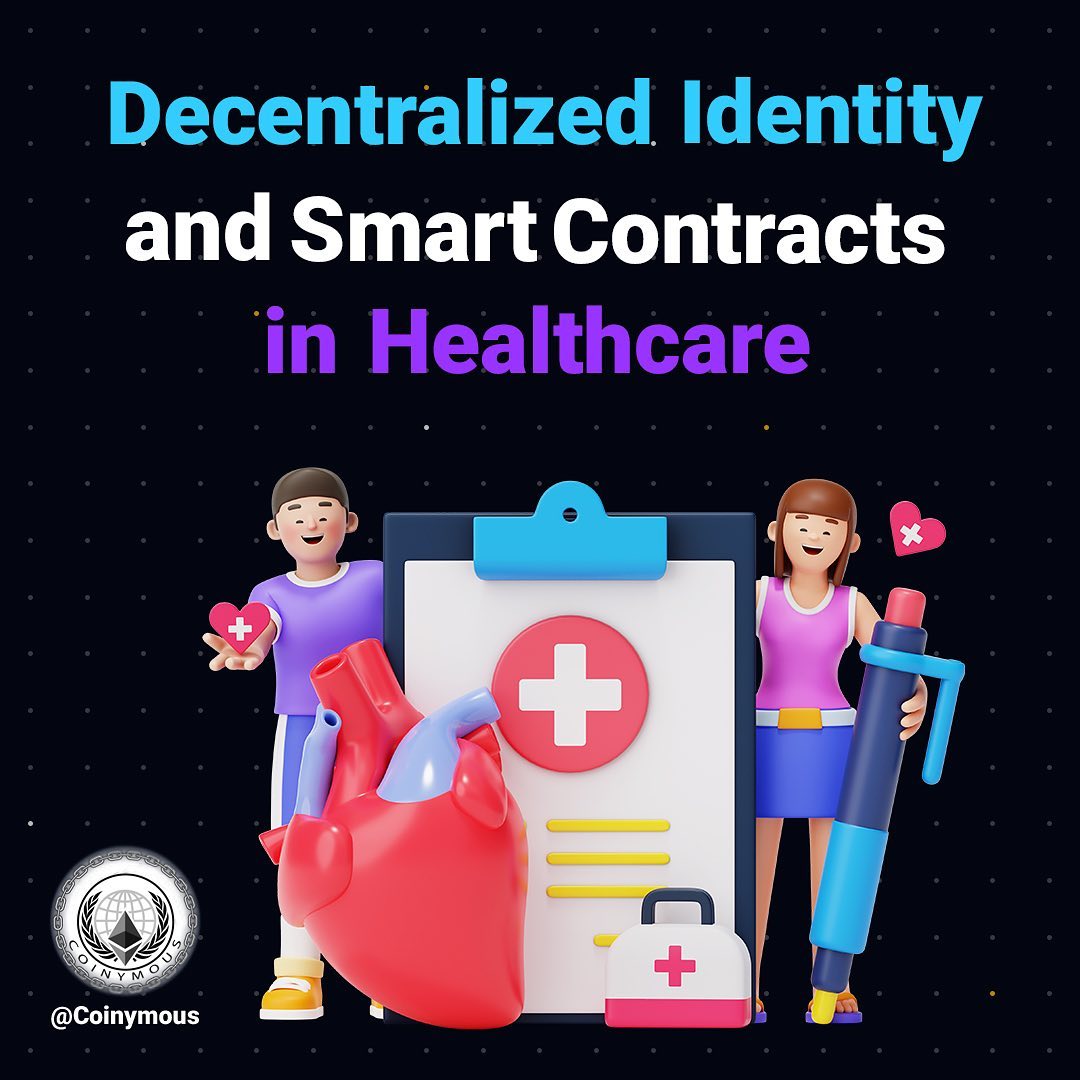Decentralized Identity and Smart Contracts in Healthcare 🏥🆔
Decentralized identity in healthcare allows patients to control their personal information securely, while smart contracts streamline processes and enhance security, improving patient data management and facilitating efficient healthcare operations.

Introduction:
The healthcare industry is undergoing a transformative shift with the advent of decentralized identity and the integration of smart contracts. In this blog post, we will explore the concept of decentralized identity and how smart contracts can revolutionize healthcare by enhancing security, privacy, and interoperability.
Understanding Decentralized Identity:
Decentralized identity refers to a digital identity framework that allows individuals to control and manage their own personal information without relying on centralized authorities. It enables users to own and manage their identity data securely, granting them control over what information is shared and with whom. By leveraging blockchain technology, decentralized identity ensures transparency, immutability, and data integrity, making it an ideal solution for the healthcare sector.
The Role of Smart Contracts in Healthcare:
Smart contracts, self-executing agreements with the terms of the contract directly written into the code, have the potential to revolutionize healthcare by streamlining processes, enhancing security, and promoting interoperability. Let's explore how smart contracts can impact different aspects of healthcare:
-
Patient Data Management: Smart contracts can enable patients to securely store their medical records on the blockchain, granting them complete ownership and control over their data. With the patient's consent, healthcare providers can access relevant medical information instantly, improving diagnosis accuracy, reducing duplication of tests, and ensuring continuity of care.
-
Prescription Management: By integrating smart contracts into prescription management systems, healthcare providers can automate the prescription process, ensuring accuracy, reducing errors, and preventing fraud. Smart contracts can also facilitate secure and transparent tracking of pharmaceutical supply chains, ensuring the authenticity and safety of medications.
-
Insurance and Claims Processing: Smart contracts can automate insurance claims processing, reducing administrative overhead, eliminating intermediaries, and ensuring transparency. By leveraging decentralized identity, insurers can access patient data securely, expediting the claims verification process and providing faster reimbursements.
-
Clinical Trials and Research: Smart contracts can facilitate the management and tracking of clinical trials by automating consent processes, ensuring privacy, and securely recording trial data. This enhances transparency, accelerates research, and promotes collaboration among stakeholders.
Benefits of Decentralized Identity and Smart Contracts in Healthcare:
-
Enhanced Privacy and Security: Decentralized identity and smart contracts provide patients with control over their personal health information, ensuring privacy and protecting sensitive data from unauthorized access or breaches.
-
Improved Interoperability: Smart contracts enable seamless data exchange between different healthcare providers and systems, promoting interoperability and facilitating better coordination of care.
-
Streamlined Processes: By automating various healthcare processes, smart contracts reduce administrative burdens, eliminate manual errors, and improve overall efficiency.
-
Auditability and Transparency: The immutability of the blockchain ensures that all transactions recorded on the network are transparent and auditable, enabling regulatory compliance and reducing fraud.
Conclusion:
Decentralized identity and smart contracts hold immense potential for revolutionizing the healthcare industry. By empowering patients with control over their data and streamlining processes, healthcare can become more efficient, secure, and patient-centric. As the adoption of decentralized identity and smart contracts in healthcare continues to grow, the industry will witness transformative changes that will benefit patients, healthcare providers, and the overall healthcare ecosystem.